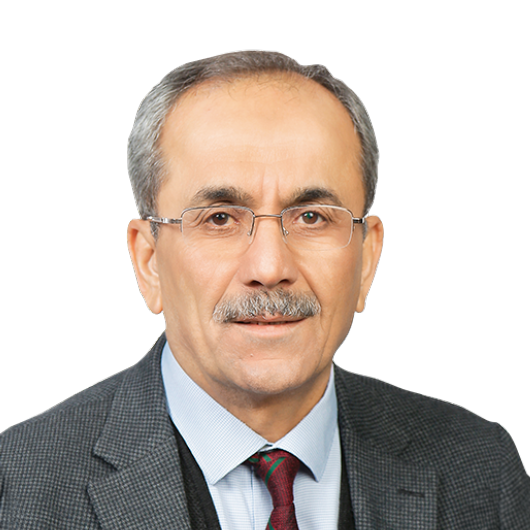I am in Baku, a city that could be the center of the Turkic world due to both its geographical position and the message it could convey. This is where I received the contradictory reports about Uyghur poet Abdurrehim Heyit. What could be said about the struggle of Uighur Turks in an intellectual atmosphere where there are those who think the verb "fall" in "falling martyr" has a negative connotation? Whereas, we use this verb in reference to some things that come to our mind and heart. We say thinking in Turkish, and we talk about thinking in our native language, and discuss the importance of these.
The contradictory reports on Abdurrehim Heyit also brought a lot to our mind. The Muslim world has been under pressure from the West, East and north for a few centuries. The difference between Islam's historic geographical borders and its borders today explains the intensity of this pressure. This pressure escalated greatly since the early 18th century, and we eventually withdrew all the way to Edirne. The pressure from the north was also very intense. The story of Crimea and the Caucasus is a different topic.
Russians spread rapidly toward the west of Turkestan. East Turkestan was left under Chinese control. There are numerous important books in Turkey written on East Turkestan’s history. If we want to turn questions belonging to us into a cause, then we have to read. It is especially a lot more important for the young generations to discover these books. I want to mention a few here.
There has been intense Chinese pressure in East Turkestan since the time of Yakup Beg. İsmail Gaspıral's "Arslan Kız" (Lion Girl), is a little novel of heroism that offers glimpses from the lives of Uighur Turks. This is a "must read" novel. The great Gaspıralı's views encompass almost the entire Turkic and Muslim world.
If a cause has no literature, it can have no fight either. After Necip el-Kiylani's "Türkistan Geceleri" (Turkestan Nights) was translated to Turkish, it was only printed a couple of times. As a matter of fact, this book has a very good translation. Abdürreşit İbrahim's book has not garnered enough interest. "Asya'da Beş Türk" (Five Turks in Asia) and "Çin Türkistan Hatıraları" (Chinese Turkestan Memories) have also not been discussed much. Yet, these books are extremely important in terms of understanding the dramatic change in our historic geographical borders. İklil Kurban's book titled, "Doğu Türkistan İçin Savaş" (The Fight for East Turkestan), must also be read.
Pressure on the Muslim world further escalated in the 21st century. However, it is possible to, in a sense, consider this natural and as a twist of fate. When we disassociate time and location from the formation of ideas, we will start to encounter irrevocable problems. Just as we are unable to find solutions to our problems, we can also become useful as a result of these problems. We have experienced exceeding examples of this.
It is important to choose artists like Abdurrehim Heyit, who have undertaken the heavy responsibility of a nation on their shoulders. It is not very easy to express a nation's grievances and to guide that nation while singing pleasantly about love. If it was easy, everybody would have done it. "Uçraşkanda" (When We Meet) was a song that those who are interested are familiar with. Heyit had an extraordinary voice. It is not difficult to guess that the pressures and tyranny in China will escalate.
There is no sense in comparing the oppression experienced by Uighur Turks to the oppressions faced by Muslims living elsewhere. The pressures and other negative factors that are further intensified as we go from the borders of Islam toward the center should be evaluated as a whole. Unfortunately they know very well the weaknesses of the Muslim world and use this to the utmost. The U.S. or China's politics aimed at Turks-Muslims is aimed at winning. We saw what Myanmar did in Rakhine state. They are turning Muslims into tools to achieve their own goals.
There is a massive fight which is likely to affect the whole world. This fight is most intensely being carried out through the Turkic and Muslim world. All these overt and covert battles indicate a "new colonial period." There is a cut-throat war over gold and other precious minerals. Sadly, Muslims live in the central area of these minerals. This is also the world's central connection region. All the powerful states of the East and the West strived to take over this region, and there is no sign showing that they have given up on this desire.
If we want to have a say over the destiny of our region, we need to know that politics is built over knowledge.




















